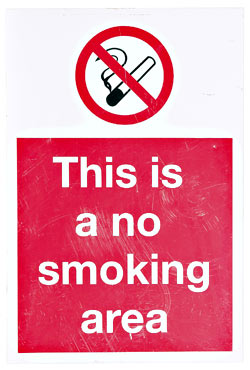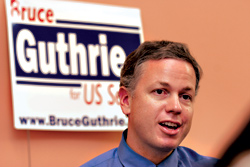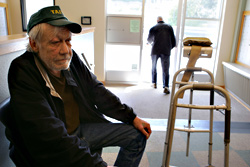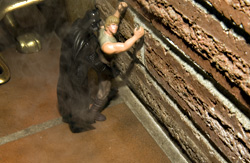The Rimrock Steakhouse is one of those classic blue-collar Seattle joints: open early for workers to drop in, maybe have a wake-me-up jolt of hooch and some cheap chow at the bar, and enjoy a cigarette. But whereas the Rimrock used to see 20 customers each morning, it now hosts only three or four, a victim of Washington state’s smoking ban, which has created a mini-recession in the region’s booziverse.
“My business is down 30 percent [since the ban went into effect this past December],” says Rimrock owner Connie Dunn. “I cannot survive.”
Meanwhile, smoking ban advocates claim that the ban is a success.
“That’s bullshit,” says Dunn, who recently put her Lake City institution up for sale. “That is total bullshit.”
Enter Speaker of the House Frank Chopp, D-Seattle, and state Sen. Jeanne Kohl-Welles, D-Seattle. Both are nonsmokers and powerful members of the state Legislature—and both say that the Clean Indoor Air Act, as the ban is officially known, has screwed up business and civic life so badly that they favor changing the law.
“I think there’s room to amend the new law,” Kohl-Welles says.
It will come too late for Dunn—ditto some local bartenders who’ve seen their tip income plummet hundreds of dollars a month. Dunn says she’s had to close her restaurant during the day and already has lost three employees, who saw their tips go from $90 to $10 a shift. Aaron Marshall, a longtime barkeep at Tini Bigs, a martini and cigar bar on Lower Queen Anne, has had to take a second bartending job—an extra 20 hours of work a week—in order to make ends meet.
“Everyone thought they were protecting employees, but no one asked the employees,” says Marshall, a nonsmoker. “We certainly could’ve found a middle ground for this whole thing.”
Last month, the Washington State Department of Revenue reported that sales at bars and taverns statewide were down 5 percent in the first three months of 2006. In that time, revenue in other sectors rose substantially.
“We’ve seen a 30 percent decrease in late-night business,” says Todd DeWoody, bar manager at 22 Doors on Capitol Hill. He says that late-night regulars were his bread and butter for tip income, and that he is now down about $400 a month. DeWoody and other bartenders note that not only has late-night business gone down the commode, but that nonsmokers tend to drink less than do smokers.
But it’s not just the indoor ban that’s causing problems for bars—it’s the draconian 25-foot rule that all but prohibits outdoor smoking as well.
Linda Derschang, owner of Linda’s Tavern on Capitol Hill, the Viceroy in Belltown, and the newly opened King’s Hardware in Ballard, says she supports the indoor ban—but that the 25-foot rule is worse than rotgut whisky. “I’m really in disagreement with the 25-foot rule,” she says. “It’s overly harsh. It’s turning my servers into cops. They are working for tips and to take care of customers—not to be authority figures.”
Derschang says her bars are doing well in revenue, partly because her Capitol Hill venue has an area out back that’s outside the 25-foot boundary where smokers are prohibited from lighting up. But she’s bothered by selective enforcement of the ban, which has been more aggressive on Capitol Hill than in other parts of town. For example, 22 Doors on 15th Avenue East has been cited twice (no fines yet) for allowing patrons to smoke on a heated outdoor patio that’s completely sealed off from the bar-bistro’s indoor areas. In one case, a complaint was relayed to the public health department by a couple who appeared, at least to the Doors’ staff, to be roving narcs on the prowl for places trying to find a way to accommodate regular customers who smoke. One of the narcs told staffers that he was “offended” that smoking was going on outside—and there are reports that some bars have been ratted out by passing motorists.
Last fall, King County’s tobacco czar, Roger Valdez, said that the 25-foot rule would be no big deal; as long as smoke wasn’t going into a building, there would be no violation of the law. Valdez did not answer multiple requests seeking comment to explain his department’s much heavier hand since the ban went into effect. The American Lung Association of Washington, the prime backer of the Clean Indoor Air Act, said in an e-mail that the ban is good for Washington food and beverage workers. And Matias Valenzuela, a spokesperson for the Seattle–King County Department of Public Health, says the ban and the 25-foot rule have been a success.
But Sen. Kohl-Welles says the 25-foot rule has led to too much civic strife and needs to be repealed.
“That 25-foot rule overreaches,” she says. “On Queen Anne, you have such a high density of buildings that sometimes you cannot get 25 feet away. With rain in the winter, it’s just a bit much.”
“Its one thing having an indoor ban,” seconds Chopp. “But this 25-foot rule, I thought it was ridiculous. There will be some bills introduced to change that rule. But it will be difficult to get to two-thirds [yes votes] on that.”
Kohl-Welles also says the Legislature should take up exemptions to the smoking ban for places like private clubs, cigar bars, and tobacco stores. But under state law, initiatives cannot be amended by the Legislature during their first two years without a supermajority (two-thirds). After two years, initiatives can be amended by a simple majority. Kohl-Welles says she can only see the Legislature getting a supermajority to carve out an exemption for religious purposes, such as smoking a peace pipe at a Native American ceremony.
Marshall, DeWoody, and some other bartenders have also noticed a trend as disturbing to them as lost income. Late nights in Seattle bars, especially during the week, used to be the time when creative types of every stripe would gather, slam down 80-proof concoctions, and smoke. It was unpredictable what people would show up, what ideas would be generated, and who would go home with whom. Such impromptu salons beat the hell out of watching Grey’s Anatomy reruns. But that’s largely over now.
“It’s very strange,” says Marshall. “I don’t know where everyone has gone. Maybe they are staying at home.”








